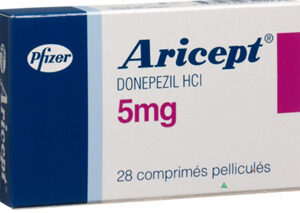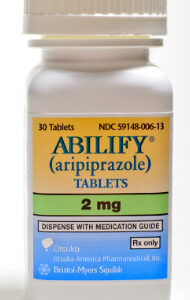Generic and Brand Names
Antabuse is the brand name for the generic drug disulfiram, which is used as part of a comprehensive treatment plan for alcohol dependence.
Pharmacological Classification
Disulfiram belongs to the class of drugs known as aldehyde dehydrogenase inhibitors. It works by interfering with the metabolism of alcohol within the body.
Indications for Use
Antabuse is indicated for the management of chronic alcoholism in patients who are motivated to abstain from alcohol and are receiving supportive therapy and counseling.
Available Forms and Strengths
Antabuse is available in tablet form. The most common strength is 250 mg, but 500 mg tablets are also available.
Dosing Information
The initial dose of Antabuse is typically 500 mg taken orally once daily. Maintenance doses are generally 250 mg daily, but the range may vary from 125 to 500 mg. It should be individualized based on patient response and tolerability.
Administration Guidelines
Antabuse tablets should be swallowed whole with a full glass of water. It may be taken with or without food. To ensure efficacy, patients should not ingest alcohol for at least 12 hours before the first dose of disulfiram.
Mechanism of Action
Disulfiram works by inhibiting the enzyme aldehyde dehydrogenase, leading to an increased concentration of acetaldehyde when alcohol is consumed. This accumulation causes unpleasant effects, which discourage the consumption of alcohol.
Pharmacodynamics and Pharmacokinetics
Following oral administration, disulfiram is rapidly absorbed from the gastrointestinal tract. It is metabolized in the liver and its effects can last for up to two weeks after the cessation of therapy due to its long half-life and the formation of active metabolites.
Contraindications
Antabuse should not be used in individuals with known hypersensitivity to disulfiram or other thiuram derivatives used in pesticides and rubber vulcanization. It is also contraindicated in patients with severe myocardial disease or coronary occlusion, psychoses, and those who have consumed alcohol within the past 12 hours.
Drug Interactions
Disulfiram may interact with several other medications including but not limited to warfarin, isoniazid, phenytoin, benzodiazepines, and certain antifungals. Coadministration with these drugs may require medication adjustments or increased monitoring.
Adverse Effects
Potential adverse effects may include drowsiness, fatigue, headache, acneiform eruptions, and allergic dermatitis. Severe reactions can occur if alcohol is ingested, leading to symptoms such as flushing, nausea, vomiting, dizziness, palpitations, and hypotension.
Monitoring Parameters
Monitoring liver function tests before and during treatment with Antabuse is recommended to detect potential hepatotoxicity. It is also advised to monitor for signs of depression or other psychological concerns.
Counseling Points for Patients
Patients should be informed about the potential consequences of alcohol consumption while on Antabuse treatment, including the possibility of severe reactions. They should also be counseled on avoiding any hidden alcohol in food, cough syrups, tonics, and sauces.
Pregnancy and Lactation Usage
Disulfiram should be used during pregnancy only if the potential benefit justifies the potential risk to the fetus. It is unknown if disulfiram is excreted in human milk; caution should be exercised when administered to breastfeeding women.
Overdose Management
In the case of an overdose, supportive measures should be initiated. Gastric lavage is recommended within the first 12 hours post-ingestion. Symptomatic treatment should be provided for complications such as cardiovascular collapse.
Storage and Handling
Antabuse should be stored at room temperature, away from light and moisture. Keep this medication out of reach of children and pets.
Disposal of Unused Medication
Unused or expired Antabuse tablets should be disposed of in accordance with local requirements for pharmaceutical waste. They should not be flushed down the toilet or thrown into the trash where others might have access.
Regulatory Status
Disulfiram is a prescription drug regulated by the Food and Drug Administration (FDA) in the United States and other regulatory agencies globally.






Reviews
There are no reviews yet.